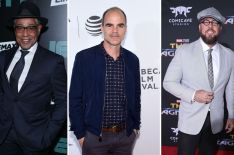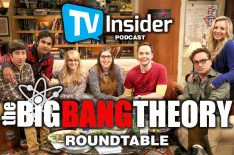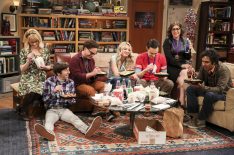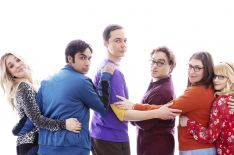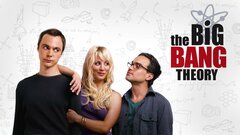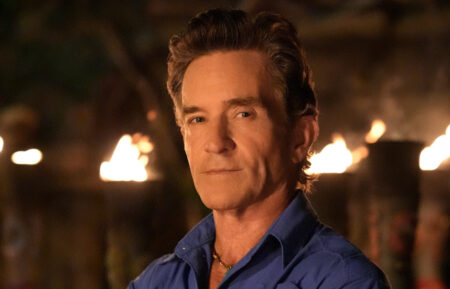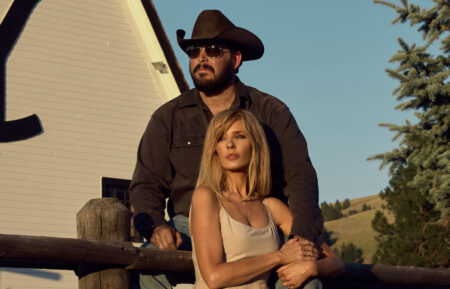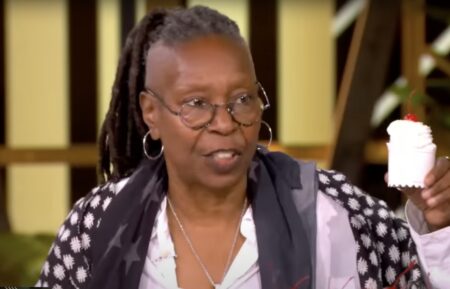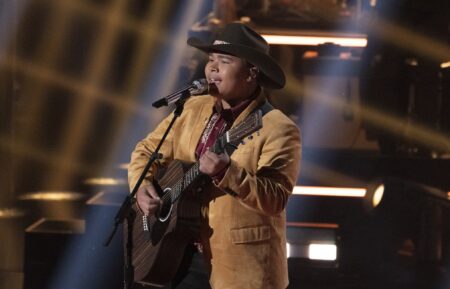‘Big Bang Theory’ Director Mark Cendrowski Reflects on the Series Finale & Emmy Nominations
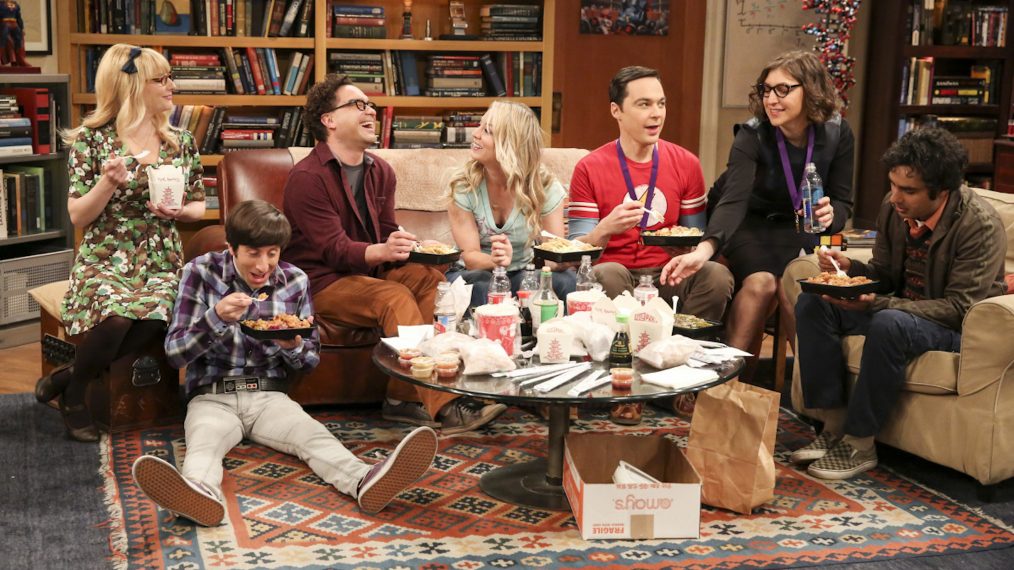
Q&A
The Big Bang Theory ended its 12-year run on CBS in May, and director Mark Cendrowski was there for most of it.
He considers the series finale, “The Stockholm Syndrome,” and the Emmy nomination he received for it particularly special. “It was thrilling to be nominated,” he told TV Insider. “It’s the perfect bow to put on the end of 12 years of just sheer fun.”
It’s the second time he’s been nominated for his work as a director on The Big Bang Theory, but the most recent nomination was “much more normal,” Cendrowski said.
In 2018, his nomination for Outstanding Directing for a Comedy Series for “The Bow Tie Asymmetry” was left out of the original announcement and the president of the Television Academy called to inform him of the error. “It was quite jarring,” he admitted. “I was excited. I was miffed at why I wasn’t [announced]. I ran the whole gamut of emotions.”
Here, Cendrowski discusses the Big Bang Theory series finale, his favorite moments, and more.
The end of the series made this year’s nomination more special, right?
Mark Cendrowski: Exactly. It’s been 12 years. We ran the gamut of emotions at the end of the season, and it had been a couple of months. It had kind of been put away and people had started moving on, and to have this brought up again and to talk about that episode and relive these memories is really quite special. And also because I think it’s a very special episode.
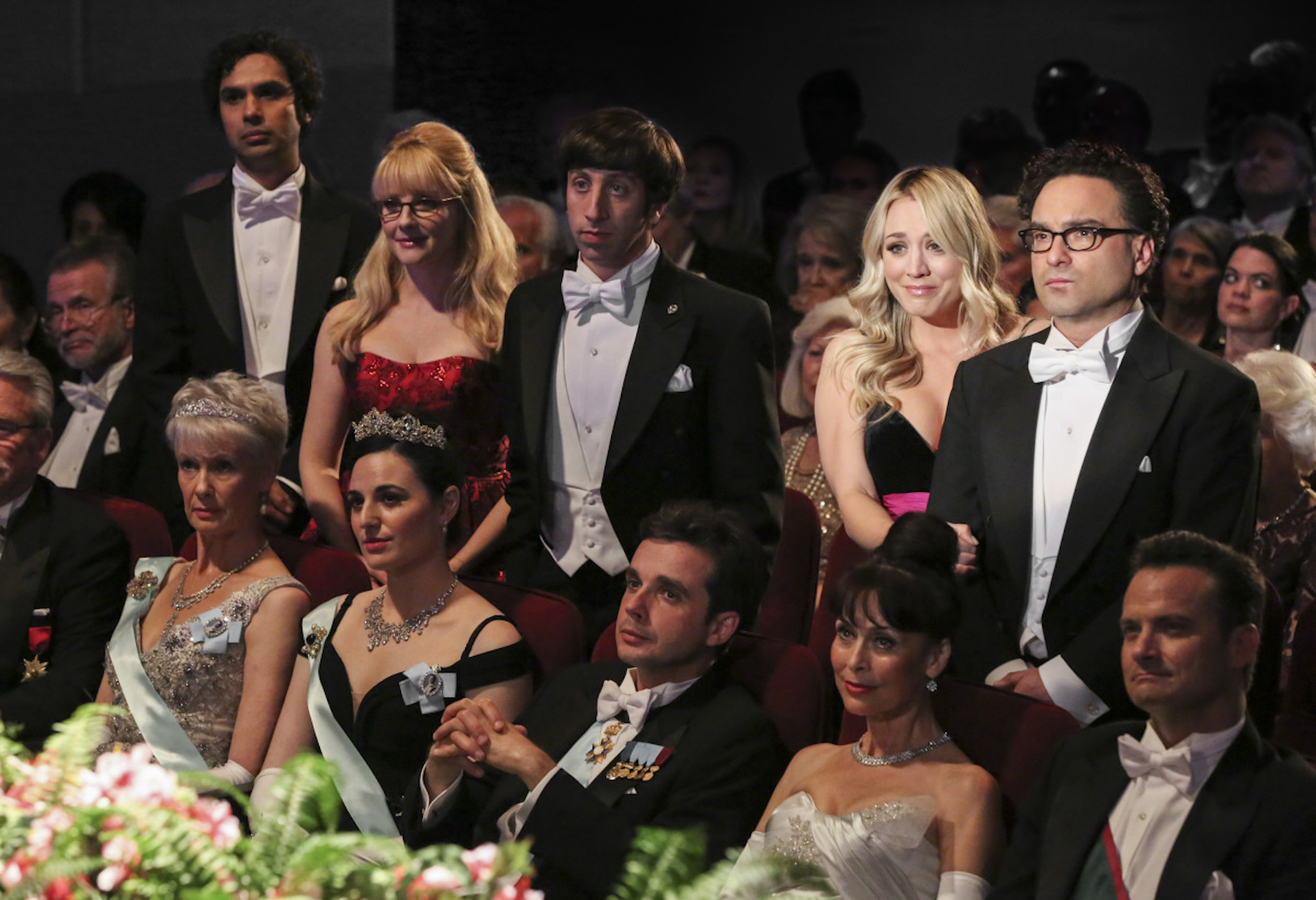
(Michael Yarish/CBS)
Can you talk about directing the series finale? Was there anything about it that you approached differently?
Because we knew all year [that this was] the last episode of the series, the whole way I approached things was to not let things get too heavy. It was going to be emotional enough. Since it was our 12th year, we treated it like our senior year of school. We did a lot of joking around. We did a yearbook. We did class photos. My intent was to keep things light and to enjoy this last season.
One of the things I did was we shot a little differently. I got an extra day of shooting, and we put the entire episode in the can before we did anything in front of the audience, which is something shows never do usually. … That way, we could take our time with scenes and if it got too emotional or people were crying or upset, we fix the makeup, redo it, talk about it, and get the right attitudes to shoot the show.
It was so palpable in the air, the excitement and the sadness and the emotions were just hanging there over everybody. Everyone got through it really quite well, and there were just a couple little moments of, “Are things going to break down a little bit? Are we going to lose some of the actors to a little crying fit?” Luckily, we got through it. And I think part of it was knowing we had the show, it took a little pressure off the actors to relax and just enjoy what they were doing.
You mentioned treating it like a 12th year of school, so was there a senior prank?
This is a crew and a cast that was pretty good at pranks anyway. The one thing I wouldn’t allow them to do was have a senior skip day.
Can you talk about the final scene you shot of the series?
We knew that the final shot [would be] of them sitting around the couch to really bookend the series. What you see in the opening credits of them sitting around eating Chinese food was such a staple of the show throughout its run. To be able to finish with that was fitting, but we didn’t want to make it simple.
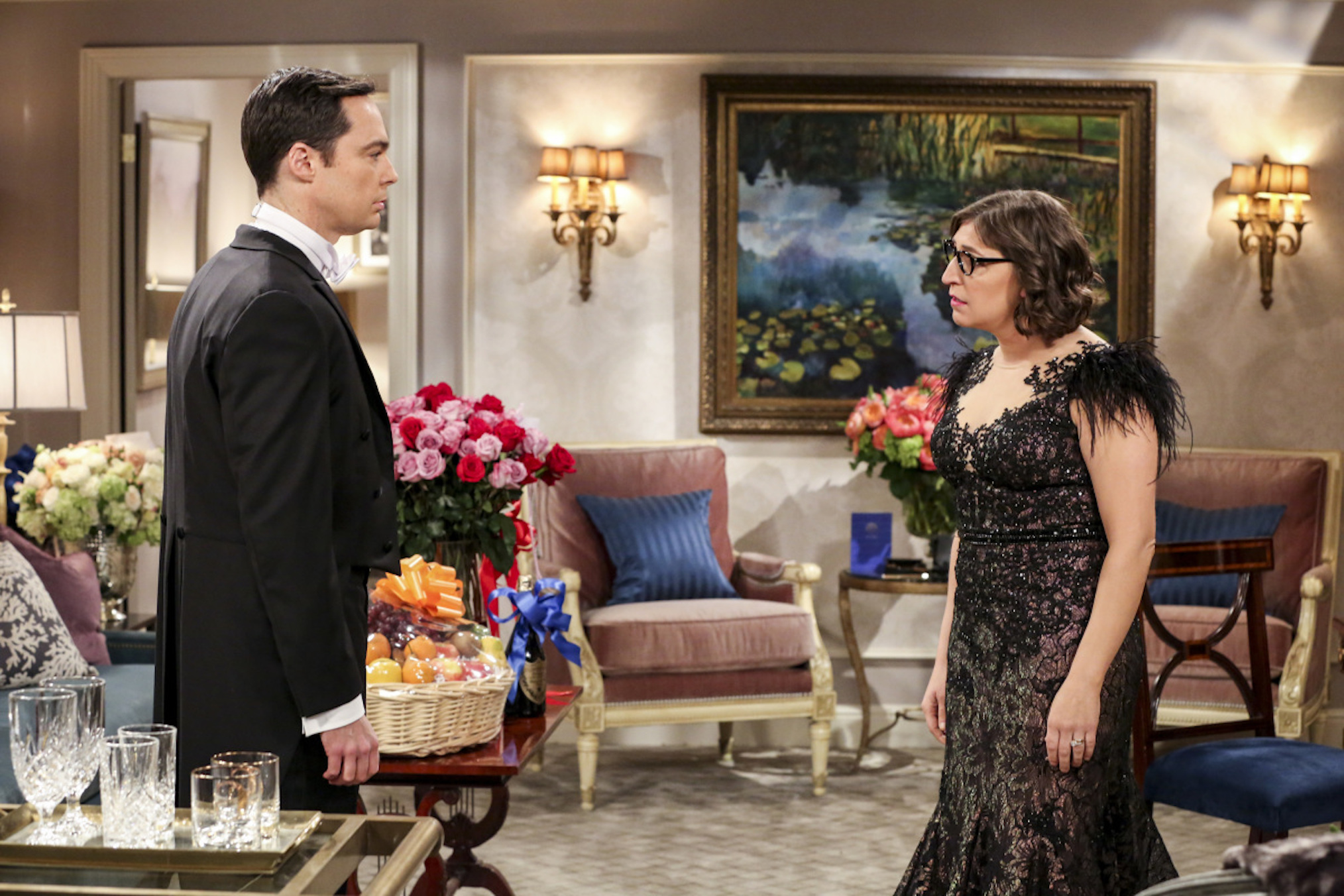
(Michael Yarish/CBS)
One of the great things they did was having the acoustic version of the song, which made it much more meaningful, and it was great having the entire crew gather around to watch. We just did it with one camera. It was one shot, and we did a little jib shot and we did a slow move and a pull-out, and as we were shooting it and watched it, memories just went through the cast and crew of all the times we were on that couch, of all the episodes we had done, certain things that stick out, how many times we did Chinese food as opposed to sandwiches or burgers or whatever else.
The slow pull out was really, really sweet and it gave you a final picture of really the friendship and what the whole series was about.
Are there any other moments from the series finale, on- or off-screen, that stand out the most for you?
The table read was absolutely amazing. We had the entire CBS staff there, everybody from Warner Bros., friends, it was really emotional. It was just fun to do and there were a lot of Kleenex boxes around, well-used.
I also think the last scene in the auditorium when Sheldon thanks everybody is certainly great. That was a complicated, big scene to shoot, with over 200 extras and having everybody dressed and everything else.
I loved one of the scenes before when Sheldon and Amy are together in the room getting ready and Sheldon is upset that his friends are being petty about things and Amy calls him on it and says, “It’s your fault.” The way it lands, it’s just a short scene between the two of them, but they played it beautifully and I just thought, that’s what the series is about. If you didn’t feel something, you did not care about these characters at all.
The last scene we had to show the audience … of them receiving their medals was a playback. After we shot the last live scene in front of the audience, gathering the entire cast around, the entire writing staff, all the producers and the crew, sitting around those monitors to watch the very last scene together, as a family, was really something special.
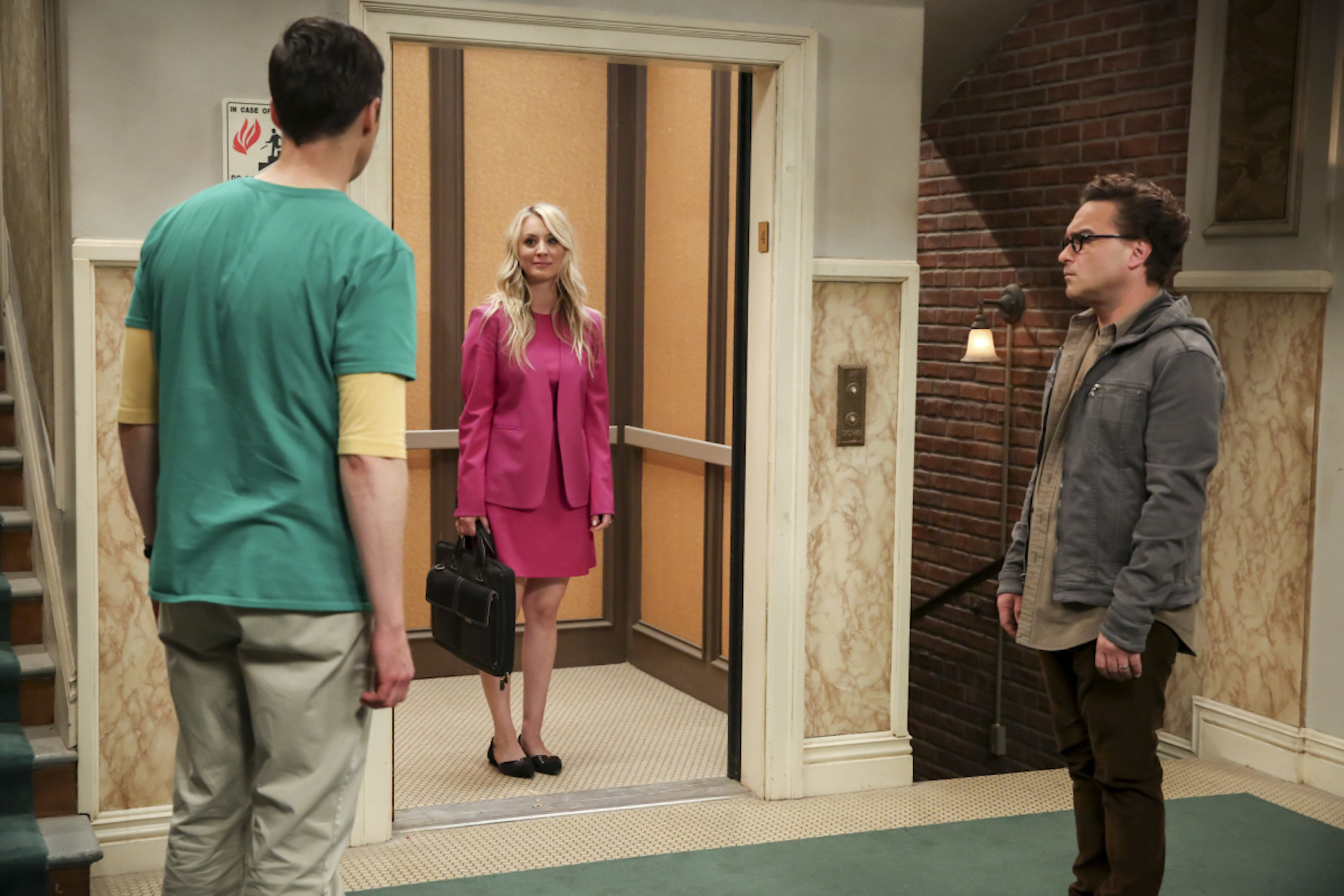
(Michael Yarish/Warner Bros. Entertainment Inc.)
What was your reaction to the elevator finally working?
It was great. I enjoyed doing that. Reading it at the table was such a great surprise to people. And the first time we did it, for the run-through, it was so much fun because we had to sneak Kaley [Cuoco] in there — we didn’t want people seeing her getting in.
[There was] an emotional lead up to it and when the two of them are standing there and that door finally opens, there is such a sense of joy on her face, certainly in the show, and certainly in the run-through, and that just radiated out through the entire crew that was watching. It was such a fitting, beautiful little piece to do.
Is there anything about the series that jumped out at you from your perspective directing it that you don’t think anyone else necessarily noticed or gave as much weight to?
When this show started, these were very unique characters. You’d certainly never seen anyone like Sheldon. There’d not been — call them nerds if you want — a show based around these brilliant minds and what they did with comic books.
But early on, I could tell when I started talking to people, once the show was on the air, people that were not comic book people, that were maybe a little older, were not nerdy, were not video game players — they still related to these characters. It appealed to everybody.
You didn’t have to be a nerd or anything specific to have trouble as a guy talking to a girl. What Leonard goes through with Penny in the beginning is common for every guy, in one way or another. The same thing with every girl and having to deal with males in that way and being asked out and having to deal with dating situations.
That’s when I knew we really had something special with this cast.

